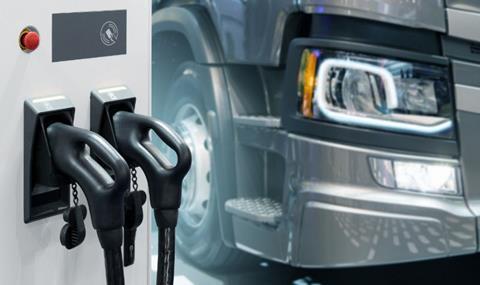
Decarbonising fleets is low down the list of priorities for most haulage companies and the 2035 deadline will have to be extended because the economics don’t stack up, according to industry feedback.
One automotive consultant who has worked for a range of truck manufacturers said he would “put my mortgage” on the government’s deadline being pushed back, because the charging infrastructure is not yet there for cars, let alone HGVs.
Another said the subject of electrification was “the elephant in the room” during discussions with hauliers.
The comments followed a blistering attack by former MAN chief executive Des Evans on plans to phase out diesel trucks.
Evans said operators would simply wait until just before the 2035 deadline, invest in the last of the new diesel trucks and continue operating them for another decade.
Garry Nelson, a commercial automotive sales consultant, said: “There’s a direct conflict between going electric and what hauliers are doing on a daily basis.
“It’s simple maths: range, charging time and capital cost. It doesn’t take a genius to work out it’s a non-starter.”
Read more
- ‘HGV operators don’t have a clue about Net Zero and won’t go electric for a generation,’ claims former MAN CEO
- “Industry facing cliff edge over net zero targets,” warns DAF MD
- ‘Our zero-carbon HGV plan will rely on commercial partnerships,’ roads minister reveals
Nelson said electric applications might work in sectors that are not price driven, but with the majority of hauliers working on margins of between 2-5% then it was unfeasible: “A lot of the industry is currently hand to mouth,” he said. “With the best will in the world, they also need to keep their business afloat. It’s about surviving.
“To be perfectly honest, operators understand net zero; no-one is a mushroom in business, but is it their absolute priority right now? No.
“The infrastructure is not there for cars, it certainly isn’t there for commercials.”
Marc Shwartz, a former senior automotive manager, said the electrification of cars was only occurring thanks in large part to tax incentives; incentives which were not being applied to commercial vehicles.
He also said that the 2035 deadline was more political than realistic: “It’s simply a deadline for not buying new diesel trucks any longer, you are still looking at 10, 15 or 20 years when those vehicles will still be running and commercial vehicles historically run a lot longer.”
Darren Newman, director at the Low Carbon Truck Consultancy, said there were a number of uncomfortable truths surrounding electric trucks: “The biggest one is cost,” he said. “You have an industry which already works in a high capital/low margin environment. To expect that industry to up the capital investment by around three times is a mistake.”
Newman also said that the deadline could still be achieved, but not by focusing solely on an electric future: “If you include renewable fuels then we can hit that target.
“Renewable fuels with electric will do the trick. I do think people see EVs as a panacea for climate change and that is naïve.”
For more stories tracking the industry journey to decarbonisation see our new Freight Carbon Zero website.













